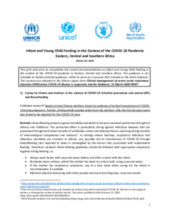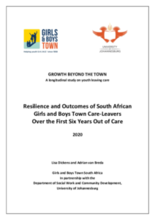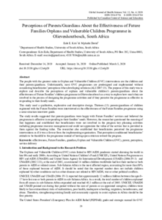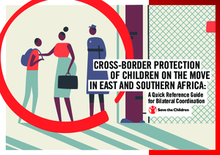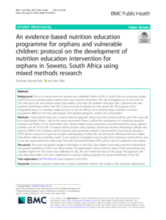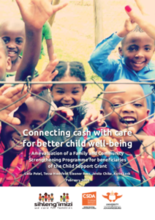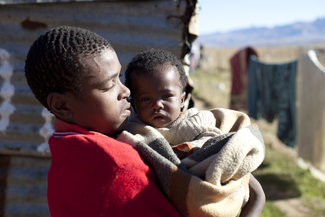

Displaying 11 - 20 of 131
Family for Every Child, as part of its How We Care initiative, has developed a series on Psychosocial support for children and families during COVID-19, which highlights different approaches taken by three of its member organizations to providing essential psychosocial support to vulnerable children and families within the context of the pandemic.
This How We Care series explores how Family for Every Child's Members are providing essential psychosocial support to vulnerable children and families within the context of the pandemic.
This joint note aims to consolidate the current recommendations on Infant and Young Child Feeding in the context of the COVID-19 pandemic in Eastern, Central and Southern Africa.
This report presents the latest findings from the Growth Beyond the Town Girls and Boys Town South Africa (GBTSA)/University of Johannesburg (UJ) joint partnership longitudinal research study. Presented are the findings from 150 participants who were interviewed as they disengaged from GBTSA, as well as the outcomes of many of these care-leavers that have been measured each year during follow-up interviews.
The purpose of this study was to explore and describe the perceptions of orphans and vulnerable children’s parents/guardians about the effectiveness of Future Families’ children programme in Olievenhoutbosch as a way to explore how much they are involved in the process of designing the programme activities and if they perceive the programme as effective in responding to their family needs.
This Quick Reference Guide is a practical guide for all stakeholders who hope to implement a government-led, cross-border coordination mechanism for the protection of children who are unaccompanied and separated while in situations of migration or displacement.
The aim of this study was to assess the feasibility and acceptability of a home‐based intervention—Amagugu Asakhula—to promote nurturing interactions and healthy behaviours with the caregivers of preschool children.
The goal of this study was to investigate the efficacy of the Balekane EARTH program, a 2-week wilderness-based therapeutic intervention in Botswana for children who have been orphaned.
The purpose of this longitudinal study from BMC Public Health is to develop, implement and to test the efficacy of an evidence-based nutrition education programme (NEP) for orphans and vulnerable children (OVC) in South Africa that will integrate their families/caregivers, schools and communities.
This report presents the findings of an intervention study evaluating the short-term outcomes of Sihleng’imizi Family Programme, an evidence-based preventative social-educational intervention.


